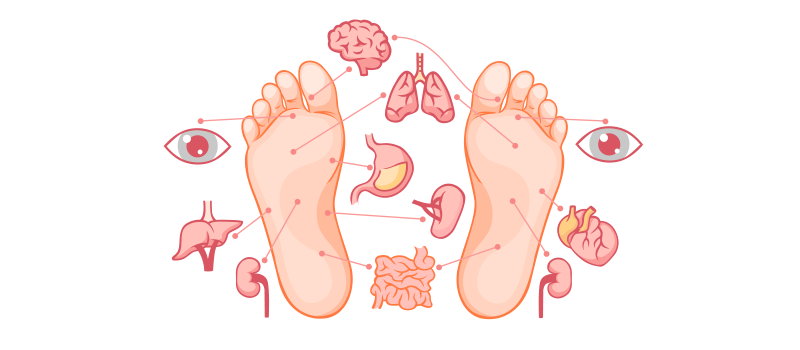What’s the Buzz
The Bee Healthy Blog
Medications That Should Not Be Taken with St. John's Wort

St. John’s wort preparations are widely available at pharmacies, health food shops, and supermarkets. Many people think that because St. John’s wort is a natural botanical substance and herbal medicine that is widely available without a prescription, it is safe. But the truth is that St. John’s wort can interfere with many prescription medications and over-the-counter products. Please continue reading to find out if St. John’s wort interacts with your prescribed medicines or any OTC items in your medicine cabinet.
What is St. John’s wort?
St. John’s wort (Hypericum perforatum) is named after Saint John the Baptist. It is a plant with yellow star-shaped flowers and is native to Europe. The plant blooms in late June in time for the feast of John the Baptist.
Historically, St. John’s wort was used for other conditions such as kidney and lung diseases, insomnia, and depression. More research has been done on this herbal medicine leading to more accurate information regarding its uses and the associated cautions. St. John’s wort products show benefits for depression, menopausal symptoms, somatic symptom disorder, attention deficit hyperactivity disorder (ADHD), and obsessive-compulsive disorder (OCD). On the downside, St. John’s wort could interfere with the ability to treat high blood pressure with reserpine, an old medication that is rarely used today. Among numerous drug interactions, St. John’s wort also reduces the effectiveness of medications used to control autoimmune diseases or to prevent rejection after organ transplants.
Is St. John’s wort effective?
There has been extensive research on St. John’s wort. Clinical trials comparing St. John’s wort versus placebo have found that it is as effective as standard antidepressant medications in people with mild-moderate depression. However, it is unclear if St. John’s wort can relieve the symptoms of severe depression or help with major depressive disorder that has been present for more than 12 weeks. There is not enough evidence to show that St. John’s wort effectively treats other health conditions.
Does St John's Wort interfere with other medications?
Yes, St. John’s wort interferes with many other medications. Research has shown that taking St. John’s wort and certain other medications together can result in dangerous and potentially life-threatening adverse reactions. Saint John’s wort is metabolized or broken down by certain liver enzymes. There are other drugs that are also broken down by the same liver enzymes. So when these medications are taken at the same time as St. John’s Wort, they are not metabolized as quickly because St. John’s Wort also saturates these enzymes, leading to reduced effectiveness or worsened side effects of these medications.
Additionally, St. John’s wort (Hypericum perforatum) is believed to increase the levels of serotonin, a neurotransmitter in the brain. This can have an additive or potentiating effect on any drug that can increase the serotonin levels in the brain, including prescription antidepressants such as selective serotonin reuptake inhibitors, antipsychotics, medicines for migraines (triptans), and anti-nausea medications (ondansetron). Serotonin syndrome is a life-threatening medical emergency where serotonin accumulation is at a dangerously high level.
What medications should not be taken with St John's wort?
St. John’s wort has known drug interactions with the following medicines.
HIV/AIDS antiretroviral medications
St. John’s Wort should not be taken with any type of antiretroviral medication for the treatment of HIV/AIDS. There is strong evidence regarding the interaction between St. John’s Wort and HIV protease inhibitors. Antiretroviral therapy (ART) includes HIV protease inhibitors (ritonavir, indinavir, nelfinavir, saquinavir) and HIV non-nucleoside reverse transcriptase inhibitors (delavirdine, nevirapine, and efavirenz). St. John’s wort can lead to a drop in blood levels of HIV medications leading to possible reduced HIV suppression.
Immunosuppressants
Immunosuppressant drugs like cyclosporin and tacrolimus are prescribed to liver transplant and renal transplant patients to prevent rejection of the liver or kidney transplant. St. John’s wort can lead to tacrolimus and cyclosporin blood levels dropping. There have been case reports of acute heart transplant rejection in patients who took St. John’s wort with cyclosporin.
Anticoagulants
St. John’s wort reduces the effectiveness of anticoagulants like warfarin. This can necessitate an increase in the dose of the anticoagulant medicines.
Heart medications
St. John’s wort appears to reduce the blood levels of digoxin, a medicine used to treat heart failure and heart rhythm abnormalities. These drug interactions can lead to undertreatment and worsening of symptoms associated with these serious health conditions.
Anticonvulsants
Suspected interactions between St. John’s wort and anticonvulsants like phenytoin, phenobarbital, and carbamazepine can reduce blood levels of these medicines and increase the risk of seizures.
Selective serotonin reuptake inhibitors (SSRIs)
St. John’s wort can interact with selective serotonin reuptake inhibitors (SSRIs), monoamine oxidase inhibitors (MAOIs), and other antidepressants; this interaction leads to high levels of serotonin in the body. Examples of SSRIs include citalopram (Celexa), sertraline (Zoloft), paroxetine (Paxil), and fluoxetine (Prozac). This drug interaction can result in mild to severe side effects.
Triptans
Triptans are a group of drugs used to treat migraines. Some examples include sumatriptan (Imitrex), zolmitriptan (Zomig), and rizatriptan (Maxalt-MLT). St. John’s wort can potentially increase the serotonergic effects of these drugs and lead to more severe side effects.
Contraceptive drugs
There have been reports of breakthrough bleeding in people taking St. John’s wort with birth control pills. There is also a risk of oral contraceptives failure due to drug interactions.
Asthma medications
St. John’s wort may potentially lower the blood levels of theophylline, a bronchodilator prescribed to people with asthma and chronic bronchitis. This can lead to poor control of these conditions.
Other medicines
Taking St. John’s wort with certain other medicines, including over-the-counter cough and cold medicines, can lead to dangerous health complications. For example, St. John’s wort preparations can interact with the cough suppressant dextromethorphan, one of the active ingredients in many over-the-counter cough and cold products. Similar to other drugs that can increase serotonin levels, this interaction can lead to a dangerous condition called serotonin syndrome, in which there is too much serotonin in the body. Taking St. John’s wort with photosensitizing drugs, which increase sensitivity to light, can increase the risk of a reaction.
The medicines listed above may not include all St. John’s wort drug interactions. Give your doctor and pharmacist a complete list of your medications, including prescribed medications, over-the-counter medications, dietary supplements, and herbal products, to reduce the risk of a dangerous drug interaction.
Why shouldn't you take St John's wort?
Many dietary supplements and herbal remedies, including St. John’s wort, are available over-the-counter. They claim to treat or relieve a variety of health conditions and symptoms. Prescription medications take 10 to 12 years on average to get approved. With the criteria not as strict as those for prescription drugs, the FDA ensures the safety and efficacy of OTC products for consumers to use at home without the supervision of a healthcare professional.
Due to the ease of access and availability, a lot of people underestimate the effects of OTC medicines. It is important to remember that OTC drugs may not be safe for people with certain medical conditions. In addition, supplements and herbal remedies like St. John’s wort can interact with your other medications, which can lead to serious adverse reactions and health complications.
If you choose to take St. John’s wort, mention it to all your healthcare providers, especially before starting any new medications. You can also report suspected interactions to the FDA’s MedWatch program at 1-888-INFO-FDA (1-888-463-6332).
References:
- https://www.ncbi.nlm.nih.gov/pmc/articles/PMC7056460/
- https://www.nccih.nih.gov/health/st-johns-wort#
- https://www.medsafe.govt.nz/profs/puarticles/sjw.htm
- https://pubmed.ncbi.nlm.nih.gov/11367207/
- https://www.mayoclinic.org/drugs-supplements-st-johns-wort/art-20362212#
- https://www.fda.gov/drugs/special-features/how-fda-strives-ensure-safety-otc-products#:~:text=FDA%20regulations%20ensure%20that%20OTC,%2C%20effectiveness%2C%20and%20safety%20standards.




SOCIAL